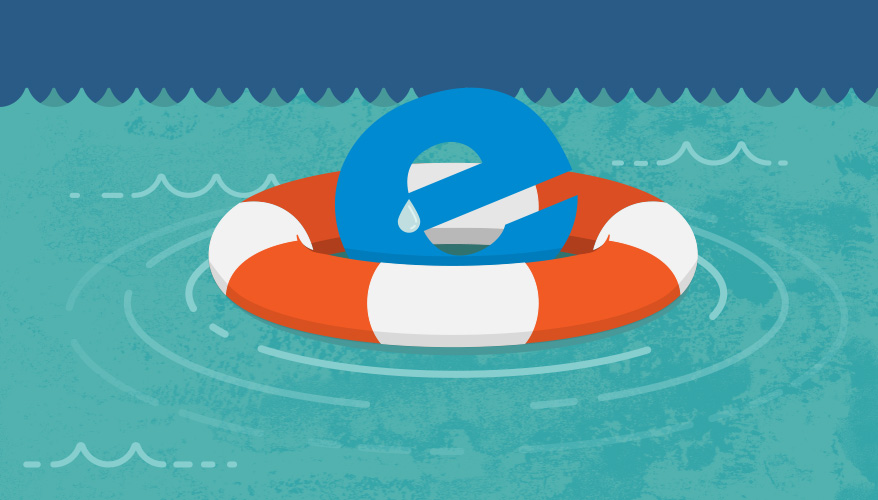Anyone who spends a substantial amount of time on the Internet will likely have come across what are called “cookies.” Food may be what comes to one’s mind when hearing about them, but in the world of the Internet, they serve a totally different purpose.
Cookies 101
A cookie, more formally known as an HTTP cookie, is website data in text format stored by a web browser. These tiny bits of information are automatically downloaded by browsers when visiting any website. A cookie can either contain information about the site itself, or the ads, images and graphics found on the Web page. This means that you can potentially download information on a website without actually visiting it, because you came across an ad that redirects to that site. Cookies typically contain 5 sections of information: the name of the site or web page, the content, domain, expiration and path. This information can easily be accessed by going to a browser’s options or preferences menu, granted of course that the browser enables cookies.
What Are Cookies For?
Cookies are used for storing information on passwords and usernames for specific sites. Cookies also hold information on website preferences, as well as personalized looks and formats for web pages. Cookies have a plethora of uses, but it’s definitely best to start by providing examples on how they are used.
1. Online Shopping/Ordering Systems
In this scenario, cookies can store information on a user’s past purchases and previous inquiries, helping the user make an informed decision on what item to buy. Enabling cookies for an e-commerce site allows the browser to remember past transactions which took place even years ago.
2. Website and Web Page Customization
Cookies are particularly useful for Internet users who frequent particular sites. A user who visits a news website such as CNN.com for example, can set the default landing page to the International version of the site by enabling cookies. This option will then remain fixed, that is until the cookie expires or if the user makes any changes.
3. Tracking
More beneficial for webmasters and developers, cookies can help them figure out visitor behaviour and provide analysis on popular pages, visitor counts, transaction counts and more. Website tracking has proven to be a controversial issue, with a number of people saying that it’s an invasion of privacy on the Internet.
Cookie Storage
Cookies are stored in directories and folders, usually hidden by default. Where these folders are placed in your computer will largely depend on your choice of browser and your operating system. Internet Explorer for Windows for example, has a folder named “Cookies\” where data is kept in small text files, one file each for a cookie. Mozilla on the other hand, uses a single .txt file to store cookie information. You can access these files yourself by check with your browser options, or by running a search on your computer.
Privacy
While cookies serve a vital purpose in making the Web experience better, faster and overall, more convenient, cookies can also be abused. In today’s information-drive age, the Internet has grown from being a tool used for educational and government purposes. It is now a major commercial platform, and cookies are but one of the many avenues which advertisers use to track user behaviour. As mentioned earlier, cookies are useful for website owners and developers, but a growing number of advertising agencies have found a loophole with this tracking mechanism through the use of ads. Most advertisers typically make use of cookies to ensure that users don’t see the same banner ads in the different pages of a site. This is a relatively harmless function that doesn’t invade privacy—it can even be useful. However, a number of developers have sold user information to entities for commercial purposes. This information can include details on user IDs, and even passwords.
Managing Cookies
Disabling cookies for all websites can be done, but it’s largely impractical since cookies can serve useful and safe purposes. Users however, are advised not to allow their browsers to remember usernames and passwords—save for websites that are really trustworthy. A periodic cookie clean-up is also advisable. This allows Internet users to get an idea on their browsing habits, and weed out cookies with dubious origins.
I am passionate about online privacy and believe we have the right to completely control our online identities. I use a VPN service to help protect my online identity.

6 Comments
Leave a Reply
Cancel reply
Leave a Reply
This site uses Akismet to reduce spam. Learn how your comment data is processed.
























































































































































































Henway
May 14, 2011 at 3:16 pm
A recent European law has made retailers mandatory to tell customers they are storing cookies.. I think it’s a dumb law.. gonna stifle innovation
D. Golf
May 15, 2011 at 1:13 am
We are constantly trying to determine customer behavior in our website. And, how is that any different from market research that is done thru other sales venues. It’s no more invading than methods used in snail mail and TV media sales.
Gary David
June 1, 2011 at 2:09 am
Cookies are used for storing informations and saving passwords. It also stores the URL that we open. This is like a history. The difference is the history only saves the URL’s.
Luqman
May 23, 2011 at 5:47 pm
Some eCommerce website used to protect customers and there system, by encrypted the cookie, so if you were to look at it, it would resemble a jumbled mix of letters and numbers, and the cookies will be deleted after you close the browser.
Rajan
June 30, 2011 at 9:39 am
Hi….. the blog is really nice and informative one… really i learned a lot about “Internet Cookies” from this blog…. thanks……
Michael L
January 18, 2012 at 2:10 am
MM I love cookies! Especially chocolate chip!
Haha, just kidding. This post is a good crash course for anyone who doesn’t know what cookies are!